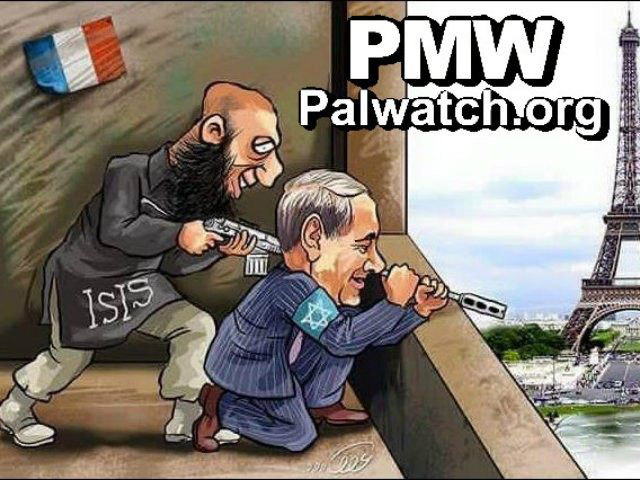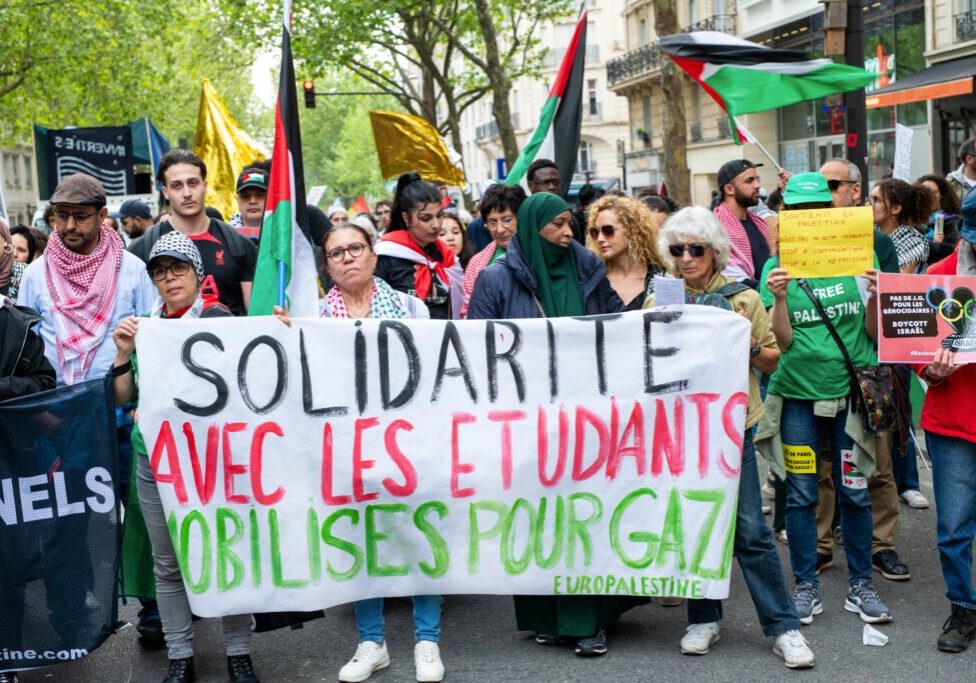Australia/Israel Review
Scribblings: Paris and Palestinian polls
Nov 27, 2015 | Tzvi Fleischer

Tzvi Fleischer
Paris and Palestinian polls
This edition contains an important new article by Daniel Polisar, which is a pretty comprehensive look at reputable polling of Palestinians over many years. It’s not a pretty picture in terms of what Palestinians believe about Jews and Israel or support for terrorism – and goes a long way toward explaining why the Israeli-Palestinian conflict remains insoluble, despite years of international mediation efforts and several reasonable two-state peace offers from Israel.
But there is one telling poll that didn’t make it into Polisar’s study. The Palestinian Maan News agency did a poll of Palestinians this January regarding the then recent Paris attacks at Charlie Hebdo magazine and Hypercacher Kosher Supermarket and found that no less than 84.4% of 6,090 Palestinians interviewed thought the attacks were “suspicious, and that Israel may be behind it.”
The official Palestinian media had clearly fed such conspiratorial views. The Palestinian Authority’s (PA) official daily, al-Hayat al-Jadida, published a series of articles after the Charlie Hebdo attacks either implying or saying openly that Israel or the Mossad must be behind them, largely on the grounds that the attacks benefitted Israel by encouraging French Jews to emigrate.
Today, the Palestinian media is doing it again in the wake of the latest Paris ISIS attacks. An article in al-Hayat al-Jadida on Nov. 15 insisted that to find the perpetrators the world must “search the last place reached by the octopus arms of the Mossad… It is clear that its ‘Mossad’ will burn Beirut and Paris in order to achieve [Israeli Prime Minister Binyamin] Netanyahu’s goals.”
Meanwhile, the official Facebook page of the Fatah movement, led by PA President Mahmoud Abbas, published a cartoon saying the same thing – showing Netanyahu with an ISIS terrorist near the Eiffel Tower. Netanyahu is pictured helping the ISIS terrorist aim his machine gun.
In addition, the spokesman for the PA National Security Forces, Adnan Damiri, posted statements on Facebook that hinted that Israel must be responsible for the terror attacks in Paris and Beirut on the grounds that these are “two beautiful and advanced cities, two cities that arouse admiration with their positions regarding Palestine.”
Then there was the article in al-Hayat al-Jadida on Nov. 11 that fingered “Western and Israeli security services” for the ISIS-claimed bombing of the Russian passenger jet over Sinai.
This is on top of numerous articles, cartoons and public statements alleging that Israel was just as “terrorist” as ISIS, or was ultimately the inspiration for all terror in the world.
How can peace come about when Palestinians are constantly force fed a media diet of crazy conspiracy theories – and, as polls show, largely believe it?
The Palestinian Leadership and Incitement
So why does the PA leadership encourage such content in the official media that it directly controls, damaging – perhaps destroying – any hopes for a two-state outcome? Because ultimately a two-state peace is actually not on its agenda.
Want evidence? Legendary Israeli journalist Ehud Yaari, who has known almost the whole Palestinian leadership personally for decades, explained this very clearly in a talk he gave on Nov. 6 during his recent visit to Australia.
Here’s what he said in response to a question about the Palestinian leadership:
“The Palestinians have made a decision, and the Palestinian decision is: we are not interested in a mini-state, statelet, ’67 borders and east Jerusalem and all this… ‘This is just a slogan, a battle-cry, this is not our political agenda.’… I don’t know one Palestinian – and I have been… all my life in the no-man’s land between Israelis and Palestinians -… who thinks this is the real objective, goal, aim, of the Palestinian national movement. Nobody!… I am a disciple of Arafat in many ways … Arafat used to tell me in private conversations – and I was… his biographer – …‘a Palestinian state [in the] 1967 border is a sovereign cage.'”
Just to be clear, Yaari remains an advocate of a two-state solution and is not suggesting giving up. He also said:
“So, this is the challenge to us [Israelis]. Because … the other party is not interested, and doesn’t have the motivation to make the necessary compromises for a deal, if we want a deal, if we want a Palestinian state in peace next to us, then we have almost to compel them to go for it.”
Yaari has some ideas for doing this involving interim agreements and employing the leverage of foreign aid on which Palestinian leaders depend. But until the world grasps the real obstacle to a two-state solution is not settlements, nor the fiction of Israel moving to the right, nor Israeli “intransigence”, but a Palestinian leadership and population which does not see a two-state solution as its real goal, no amount of engagement, or pressure, or UN resolutions or ingenious peace plans will do any good.
Jews on the Temple Mount
The Palestinians have incited violence of late by falsely claiming that Israel is endangering the Al-Aqsa Mosque on Jerusalem’s Temple Mount, and planning to make it a Jewish place of worship. It’s a complete fabrication, but rather than say the Palestinian claim is baseless, some news agencies have claimed that visits by “increasing numbers” of religious Jews inspired the Palestinian fears.
This claim isn’t exactly untrue, but it is deceptive. Here are the numbers according to Israel’s Ministry of Foreign Affairs: in 2013, there were just under 4,000,000 Muslim visits to the Mount, 200,000 or so Christian visits, and 8,528 Jewish visits: around 0.2% of the total. In the Jewish year which ended in September, there were just over 12,000 Jewish visits: around 0.3% of the total. So numbers are up, but remain utterly insignificant on a percentage basis – and certainly provide no justification for Palestinian claims of a Jewish “threat” to the holy site.
This article is featured in this month’s Australia/Israel Review, which can be downloaded as a free App: see here for more details.
Tags: Europe






